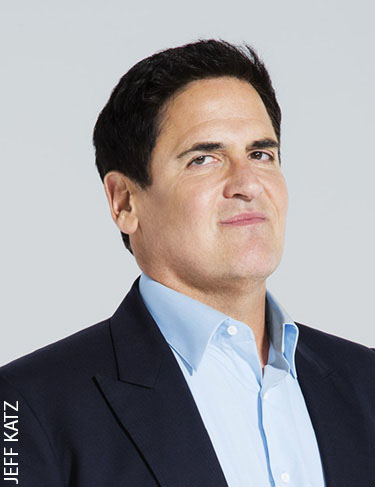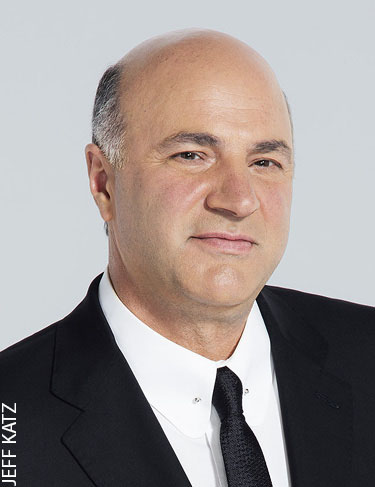

Shark Tank Appearance: Nov. 7, 2014
Investors: Mark Cuban and Kevin O’Leary
Deal: $150,000 for a 20 percent stake, split evenly
Results: Total sales increased from $150,000 to more than $15 million.
The emails seemed to never stop. After Eli and Jen Crane, the husband-and-wife entrepreneurs behind Bottle Breacher, appeared on Shark Tank in November 2014 they were flooded with more than 20,000 orders. Their team produced about 100 of the customized bottle openers—made from dummy .50-caliber bullets—per day. To keep up with the new demand, they needed to increase production 15 times. The stress was intense. The hours, grueling. Eli and Jen were working until 1, 2 or 3 in the morning, leaving them just a couple of hours of sleep before they woke up with their daughters, who were 7 and 3 years old at the time.
Related: Do These 4 Things to Avoid Losing Your Mind as an Entrepreneur
“We were dealing with this huge production issue, all day, every day, nearly round-the-clock,” Eli says. In the midst of that, emails from Mark Cuban and Kevin O’Leary, their two investors from ABC’s Emmy Award-winning business reality show, would appear in their inbox. “Customers who had been waiting weeks for their orders would reach out to them through Instagram or Twitter, and they were passing along what these people had said.” Without the expletives, the gist of those messages was, “How could you invest in these losers? They can’t even deliver the product.”
It was, says Eli, an absolute low point. “Mark and Kevin took a chance on us, and all that Jen and I wanted to do was make those guys proud. Instead they’re getting their names dragged through the mud.”
Crane’s response to O’Leary and Cuban was unwavering: “We’re on top of this, and we’ll take care of it.” He projected the same unflinching confidence to his employees. That stance was one of the many lessons he learned during the 13 years and five deployments he spent in the military, the last three in Iraq as a Navy SEAL.
“In the SEALs we say ‘Calm is contagious,’ ” Crane says. “When things are going sideways, shots are being fired and it’s a dangerous, unknown and chaotic environment, people have a tendency to start freaking out and yelling. All that does is amplify the panic.”
There wasn’t denial in the steadiness that Crane projected. “Just because you’re calm doesn’t mean you don’t deal with reality. You assess things, you think outside the box and you try to come up with unconventional solutions.”
Related: 10 Ways Successful People Stay Calm
With some coaching from O’Leary and his team, Crane made changes to speed up production. For example, instead of having the engravers enter personalized messages, he had the administrative staff input the info in advance. Within two months Bottle Breacher had caught up on its back orders. Today as the Tucson, Arizona-based company gets ready for the hectic holiday season, it has 37 employees in place and a production capacity of 1,500 bottle openers a day. The company also produces a score of other products, including key chains, coasters, holsters, barbecue utensils and apparel—all made in the U.S.
O’Leary has no doubts the Cranes will be up for whatever challenges the holiday rush might bring. “The reason I love investing in veterans is that military training emphasizes many of the same traits that make great entrepreneurs,” O’Leary says. “Specifically, the three Ds: desire, drive and determination. Entrepreneurs who are in the military or have been in the past don’t fall apart when they encounter a problem like thousands of back orders and unhappy customers. They approach it with a clear head and do what they need to fix it, which is exactly what Eli did.”
Crane’s business practices continue to be guided by the lessons he learned as a SEAL. He shares three that have been especially important.
1. One is none. Two is one. “In the service, you don’t go on an operation with one gun. You always have a backup,” Crane says. That’s why he builds redundancies into the system, starting with the initial strategy of wooing two Sharks as mentors.
2. Stay in your own swim lane. “You have to clearly outline what everyone’s roles are and give people autonomy,” he says. “Jen, for example, is in charge of accounting and marketing. Although as the CEO everything is ultimately my responsibility, it’s very rare that I step in and change a plan or strategy that she’s developed.”
3. A good decision now is better than a great decision later. “A lot in business is time-sensitive,” Crane says, “which means you take the information that you have right now and make the best decision you can. That doesn’t mean you’re always right. If you’re not, you make adjustments later, but I see too many people in leadership roles who suffer from analysis paralysis.”
There is one guiding principle that looms just as large as anything Eli learned in the military: setting an example for his daughters. “We want our daughters to understand that nothing in life is given to you,” he says. “They’re seeing Mom and Dad fighting it out in the trenches to make sure they have a better life. I want them to see us, and other people, who set goals, who don’t take no for an answer, and who achieve those goals. If you make a mistake, you take accountability for it. That’s how you build a legacy.”
Related: 4 Tips for Setting Powerful Goals
This article originally appeared in the December 2016 issue of SUCCESS magazine.








